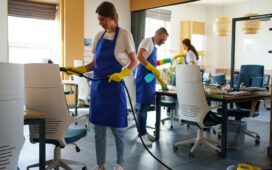As the world continues to grapple with the challenges of waste management, the proper disposal of junk has become increasingly important. From old appliances and furniture to hazardous materials and everyday clutter, how we dispose of our junk has significant implications for both the environment and public health. This article explores the importance of proper junk disposal, the methods available, and how individuals and businesses can contribute to a cleaner, healthier world.
Why Proper Junk Disposal Matters
Improper disposal of junk can have serious environmental consequences. When items are discarded carelessly, they often end up in landfills or, worse, in natural environments like rivers, oceans, and forests. This not only leads to pollution but also poses risks to wildlife and ecosystems. For example, plastics that end up in oceans can be ingested by marine life, leading to injury or death. Similarly, chemicals from improperly disposed of batteries or electronics can leach into the soil and contaminate water sources, affecting both human and animal populations.
In addition to environmental harm, improper junk disposal can also impact public health. Items like old tires, which can collect standing water, provide breeding grounds for mosquitoes, leading to the spread of diseases like West Nile virus. Hazardous materials such as asbestos, lead, and mercury, if not disposed of properly, can cause serious health issues, including respiratory problems, neurological damage, and even cancer. Click here for more information.
Methods of Proper Junk Disposal
To mitigate these risks, it’s crucial to understand the various methods available for the proper disposal of different types of junk. Here are some key strategies:
- Recycling: Collection and recycling have been discovered to be among the most efficient ways of managing the impact of junk disposal on the environment. Most of the products found in industries, for example, metals, plastics, glass, paper, and others can be recycled making them to get into the production circuit again. Recycling minimizes the requirements of raw materials hence the utilization of energy decreases and gas build up is also minimized. Electronics, also known as e-waste, should also be recycled via e-waste recycling programs so as to properly dispose hazardous materials present, they contain. Visit https://www.wm.com/us/en/recycle-right/recycling-101 to read more.
- Reuse and Donation: Most of the items which people categorize as junk may be useful to other people in one or another way. Household products such as furniture, appliances, clothing, and other household items should be returned to the charities, thrift stores or any other organizations that deal in secondhand products. Thus, you not only gain something useful, but also minimize waste and also help those people who may face some difficulties. Eco-design to use secondary materials is another technique of circular economy where products and materials are kept as active as possible to reduce as much as possible the generation of unnecessary waste.
- Safe Disposal of Hazardous Materials: There are some items that are considered hazardous and include batteries, chemicals, paints, electronics, among others. None of these items should be disposed of in household trash or in waste bins and subsequently in dump sites. Most counties and cities have events for one-time disposal of hazardous waste or have certain locations where these wastes can be brought regularly. Civil codes should be respected and adhered to in a bid to decommission these products and materials in a manner that prevents them from polluting health and the natural environment.
- Composting: Some waste that can be recycled includes food wastes, yard waste and certain papers that can be turned into nutrient-rich soil through composting. Composting is a process of recycling waste since most of the material is returned to the land instead of being taken to the landfills and moreover compost can be used as an input to plants and flowers. Hence, when composting organic matter, one discourages the degradation of organic materials in the soil and helps recycle important nutrients essential for plant growth resulting to minimum use of fertilizers.
- Hiring Professional Junk Removal Services: For large-scale cleanouts or items that are difficult to dispose of, hiring a professional junk removal service like sways junk removal can be a wise choice. These services are equipped to handle a wide variety of materials, ensuring that items are sorted, recycled, or disposed of properly. Professional services also have the expertise to manage hazardous materials safely and in compliance with local regulations.
The Role of Individuals and Businesses
It is for this reason that everyone has the responsibility of disposing junk in the right manner ranging from the individual to the business entity. For the individual, it entails a perception that belongs to the disposal items and making effort to sort those that are recyclable and those that are hazardous in nature. It also incorporates other options apart from disposal, for instance, recycling, or even giving the product out to other people for use. To the businesses, especially those firms that produce a lot of waste, they should incorporate a better waste management strategy that favors recycling, reusing and other proper ways of getting rid of waste.
Awareness and knowledge are also important as per the findings of the study. All individuals can help to make a difference and help to clean the environment and improve the health of the people by availing themselves of those options in their areas and by increasing people’s awareness of the sources and accepted methods of disposal.
Conclusion
Proper junk disposal is not just a matter of convenience; it’s a crucial component of environmental protection and public health. By recycling, reusing, safely disposing of hazardous materials, and utilizing professional services, when necessary, we can all play a part in reducing the negative impacts of waste. As the world continues to confront the challenges of waste management, making responsible choices about how we dispose of our junk is more important than ever.







